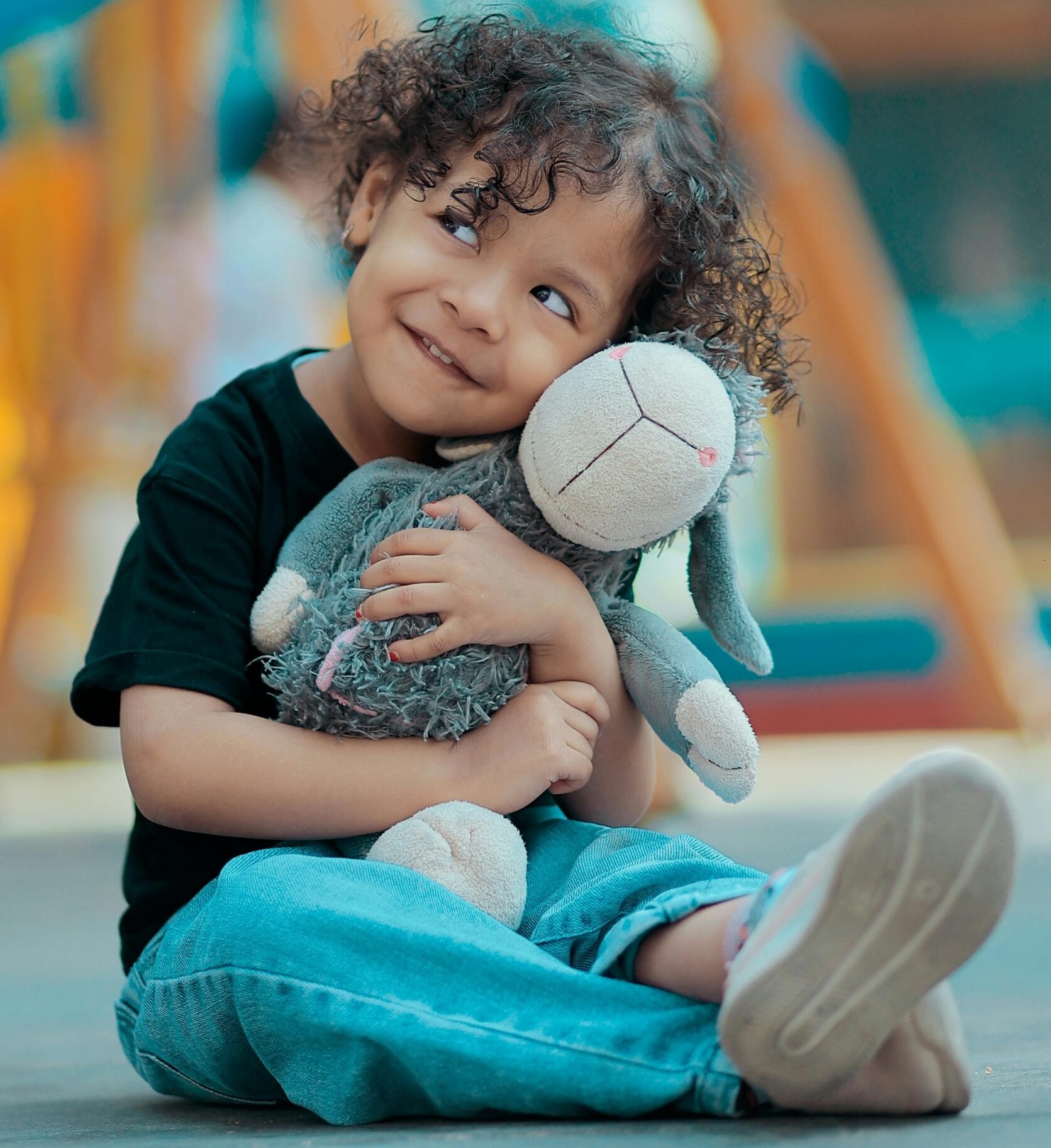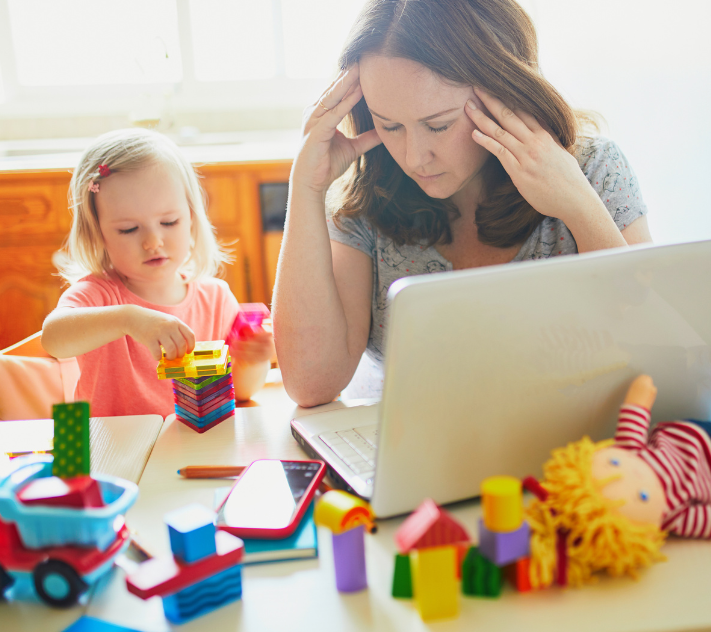De grands sentiments pour les petits enfants : activités pour les enfants d'âge préscolaire pour apprendre à comprendre les émotions
Le mois de mai est le moment idéal pour se concentrer sur les activités destinées aux enfants d’âge préscolaire concernant les émotions, car il s’agit de la sensibilisation à la santé mentale…

Mai est le moment idéal pour proposer des activités sur les émotions aux enfants d'âge préscolaire, car c'est le Mois de la sensibilisation à la santé mentale. Le 8 mai est également la Journée nationale de sensibilisation à la santé mentale des enfants, qui sensibilise au rôle crucial de la santé mentale dans le bien-être de tous, des enfants d'âge préscolaire aux seniors.
Presque 1 enfant américain sur 5 âgé de 3 à 17 ans souffrent d'un trouble mental, émotionnel, du développement ou du comportement. Les jeunes enfants sont souvent très émus lorsqu'ils apprennent à gérer et à exprimer leurs émotions. Certains enfants présentent des signes d'autisme, de troubles anxieux et de trouble déficitaire de l'attention/hyperactivité (TDAH) à un âge précoce.
Soutenez votre enfant avec des activités pour enfants d'âge préscolaire sur les émotions afin de favoriser son développement socio-émotionnel. Découvrez ci-dessous nos conseils sur la santé mentale des jeunes enfants.
Pourquoi la santé mentale est-elle importante pour les enfants ?
Le Centre sur le développement de l'enfant de l'Université Harvard met en lumière des recherches qui montrent qu'il existe un lien direct entre les premières expériences des enfants et leurs expositions environnementales et leur santé mentale tout au long de leur vieLes expériences négatives de l'enfance (ACE) sont des événements traumatisants ou indésirables qui surviennent durant l'enfance (0 à 17 ans). L'étude longitudinale de Chicago, dirigée par Arthur Reynolds, Ph. D., à l'Université du Minnesota, est un projet de recherche à long terme qui suit les parcours de vie des enfants issus de familles à faibles revenus à Chicago afin d'évaluer l'impact des programmes d'éducation de la petite enfance comme le Centre Parents-Enfants. Les nouveaux résultats de cette étude montrent que les enfants atteints d'ACE ont de meilleurs résultats scolaires à long terme, comme l'obtention du diplôme d'études secondaires, lorsqu'ils bénéficient d'une éducation préscolaire de qualité. De plus, les enfants atteints les expériences de qualité dans la petite enfance et les relations positives entre parents et enfants et entre enseignants et enfants ont un taux d'incidence des ACE plus faible. De plus, les recherches du DPP montrent que aider les familles à réduire leurs coûts préscolaires réduit le stress et améliore les relations parents-enfants.
Dit un peu plus simplement :
- La santé mentale est importante dès le début du développement et de la santé globale d’un enfant.
- Pour les enfants d’âge préscolaire, des relations significatives avec les soignants et les enseignants peuvent améliorer la santé mentale globale et réduire l’impact des ACE.
- Les écoles maternelles de qualité, comme celles avec lesquelles le DPP s’associe, améliorent la réussite des enfants à l’école, à la maison et plus tard dans la vie.
Qu’est-ce qui est considéré comme une santé mentale positive pour les enfants d’âge préscolaire ?
Une bonne santé mentale pour les enfants d'âge préscolaire commence par des relations positives avec les adultes. Lorsqu'ils se sentent en sécurité et soutenus, les enfants peuvent mieux exprimer leurs émotions et leurs besoins. À mesure que les enfants grandissent, leur capacité à ressentir, exprimer et gérer un large éventail d'émotions constitue une étape importante de leur développement. Une bonne santé mentale chez les enfants les aide également à élargir leurs compétences sociales et à développer leur curiosité et leurs capacités d'apprentissage. Bien que chaque enfant se développe différemment, Manuel du ministère de l'Éducation du Colorado décrit les étapes générales et les moyens de soutenir les enfants de 0 à 5 ans.
Activités pour les enfants d'âge préscolaire pour en apprendre davantage sur les émotions
Que vous soyez enseignant, parent, membre de la famille ou ami, il existe de nombreuses façons d'aider les jeunes enfants à comprendre et à exprimer leurs émotions et à soutenir leur santé mentale. Voici quelques idées pour vous aider à démarrer :
- L'American Montessori Society propose 6 façons de soutenir la santé mentale de la petite enfanceSe concentrer sur la joie et réguler ses propres émotions sont quelques-unes de leurs suggestions.
- Des bouteilles pour se calmer, un espace de confort ou un album d'amis Voici trois activités que vous pourriez faire dans votre classe ou à la maison pour favoriser l’acceptation et la compréhension de la santé mentale avec votre tout-petit.
- Le Fondation pour la santé mentale des enfants offre d'excellentes informations pour aider votre enfant d'âge préscolaire à nommer ses émotions, notamment un compteur d'émotions et un tableau des émotions.
- PBS Kids propose de nombreuses ressources et activités intéressantes pour aider les petits à gérer leurs émotions, à se calmer et bien plus encore.
- Le Atelier Sésame fournit des ressources fondées sur la recherche pour toute la famille qui soutiennent le bien-être émotionnel.
- Le Bureau de la petite enfance du Colorado fournit conseils et ressources de développement socio-émotionnel adaptés à l'âge.
- Il existe une multitude de vidéos intéressantes à partager avec les jeunes enfants sur la santé mentale, les sentiments et bien plus encore, notamment celles-ci :
- Série de vidéos « Esprits sains, enfants épanouis » pour les enfants de maternelle
- Chanson de sentiments et d'émotions pour les enfants
Soutenir le bien-être de votre enfant : consultation gratuite en santé mentale pour la petite enfance
Le Colorado propose des services gratuits de consultation en santé mentale pour la petite enfance (ECMHC) pour soutenir les familles, les enfants et les professionnels de la petite enfance. Des consultants en santé mentale collaborent avec les familles et les éducateurs pour favoriser le développement socio-émotionnel sain des jeunes enfants, répondre aux problèmes de comportement et créer des environnements d'apprentissage stimulants. Ces services sont axés sur les points forts, confidentiels et disponibles gratuitement dans tout l'État pour les familles.
Pour en savoir plus ou demander de l'aide, visitez le Page ECMHC du Bureau de la petite enfance du Colorado.



